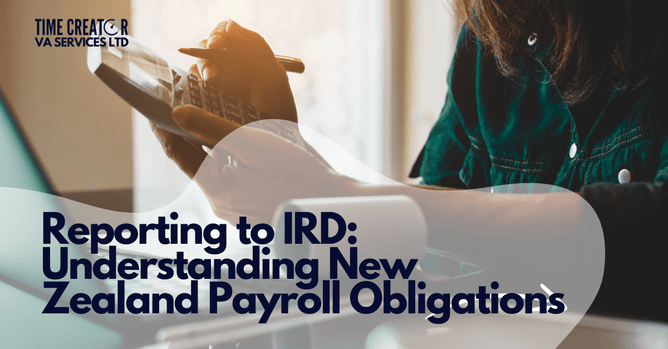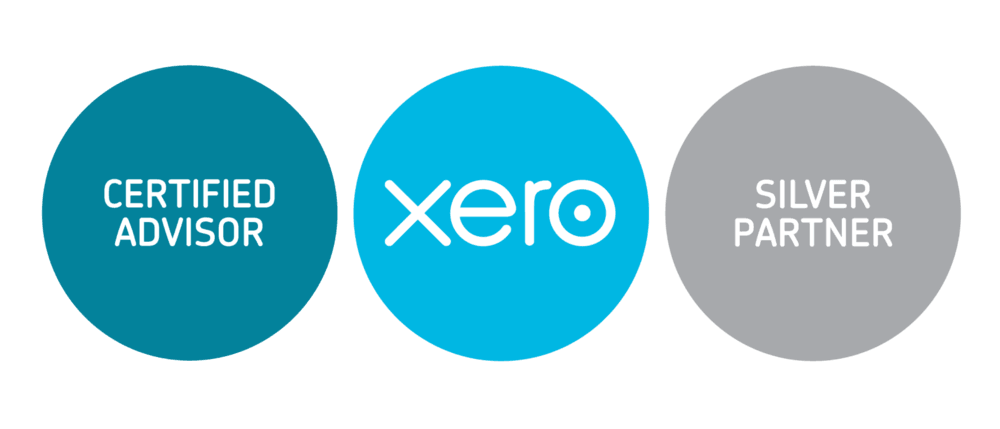Handling payroll in New Zealand isn't just about paying your employees.
Handling payroll in New Zealand isn't just about paying your employees. Employers also need to follow the rules set by the Inland Revenue Department (IRD) to stay in line with tax and employment laws. This month’s blog gives you a clear overview of your payroll obligations as an employer in New Zealand, focusing on what you need to report to the IRD.
1. Registering as an Employer
Before you hire your first employee, you must register as an employer with the IRD. You can do this online on the IRD website. Once you're registered, you'll get an employer’s IRD number, which you’ll use for all payroll-related reports.
2. PAYE (Pay As You Earn) Deductions
As an employer, you must deduct Pay As You Earn (PAYE) tax from your employees' wages or salaries. PAYE is used to pay income tax and Accident Compensation Corporation (ACC) levies. You must calculate and deduct PAYE before paying your employees, then send it to the IRD on their behalf.
3. KiwiSaver Contributions
If your employees are part of KiwiSaver, you must deduct their contributions from their wages. Employers also need to make compulsory contributions (CEC) to KiwiSaver, usually 3% of the employee's gross salary or wages.
4. Employer Superannuation Contribution Tax (ESCT)
When you contribute to an employee's superannuation fund, including KiwiSaver, these payments are taxed under the Employer Superannuation Contribution Tax (ESCT). The ESCT rate depends on the employee's income.
5. Employee Leave Payments
Employers must report payments made for employee leave, like annual leave, sick leave, public holidays, and other statutory leave entitlements. These payments are subject to PAYE and must be reported to the IRD.
6. Filing Employment Information (EI)
You need to file Employment Information (EI) every payday. This report shows the PAYE, KiwiSaver contributions, and other deductions you've made. The report must be filed within two working days after payday. You can submit these reports through the myIR online service or with payroll software connected to the IRD.
7. Income Tax Returns
At the end of the financial year, you must file an income tax return. This includes all the payroll payments and deductions made throughout the year. It ensures that all your PAYE, KiwiSaver, and other tax obligations are met.
8. Paying PAYE and Other Deductions
After filing your EI each payday, you need to pay the PAYE and other deductions to the IRD. Payments are usually due by the 20th of the following month. Late payments can lead to penalties and interest, so staying on top of these deadlines is essential.
9. Record Keeping
Employers must keep payroll records for at least seven years. These records should include details of each employee’s wages, PAYE deductions, KiwiSaver contributions, leave entitlements (note you also need to keep any records of leave requests applied for by your employees), and any other payroll information. Good record-keeping helps you provide accurate information if the IRD asks for it.
10. Compliance and Penalties
Not following payroll reporting obligations can lead to penalties, fines, and interest from the IRD. Understanding and meeting your payroll obligations is crucial to avoiding these issues and staying in good standing with the IRD.
Conclusion
Navigating payroll obligations in New Zealand means understanding the reporting requirements set by the IRD. By staying informed and organised, you can avoid penalties and keep your business’s payroll running smoothly.
If you're unsure about any part of payroll reporting, call us! We can help you make sure you are meeting all your obligations.
‘Til next time,
Elizna



